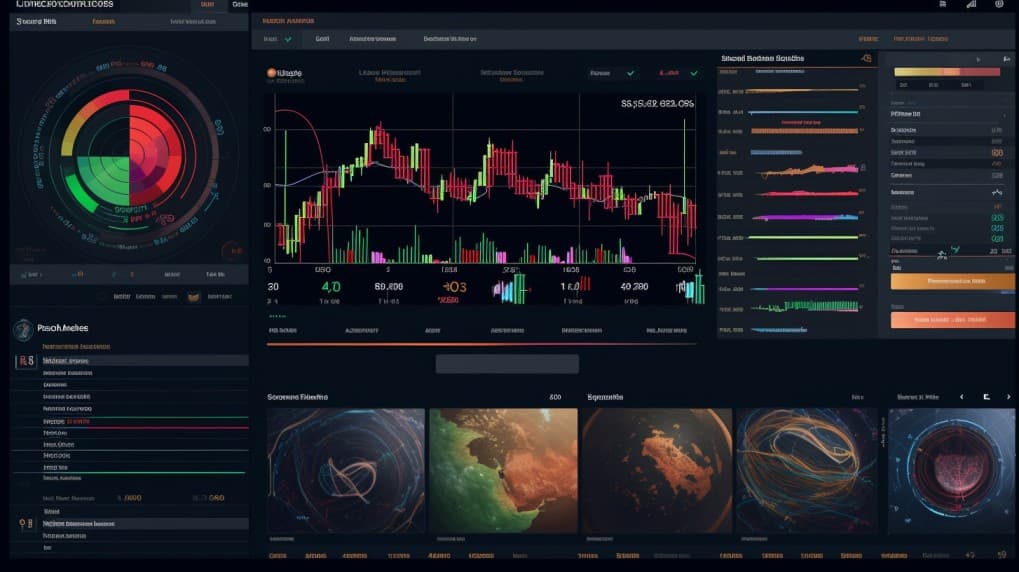
FTEC VS SMH
Exchange-Traded Funds (ETFs) have become a cornerstone of modern investment portfolios, providing investors with diversified exposure across various sectors and asset classes. In this article, we will undertake an in-depth comparison between two prominent ETFs: FTEC (Fidelity MSCI Information Technology Index ETF) and SMH (VanEck Vectors Semiconductor ETF). We will explore a range of critical aspects, including ETF tickers, full names, issuers, sectors, top holdings, capitalization, investment strategies, tracking methods, and exposure.
FTEC Vs SMH: Overview
FTEC and SMH represent two distinct corners of the tech-focused ETF landscape. FTEC, managed by Fidelity, aims to replicate the performance of the MSCI USA IMI Information Technology Index, providing investors with exposure to a wide spectrum of information technology companies. In contrast, SMH, overseen by VanEck Vectors, concentrates on the semiconductor industry. Understanding these differences in focus is crucial for investors seeking to align their portfolios with specific market trends and opportunities.
FTEC Vs SMH: Sectors and Top Holdings
The FTEC ETF encompasses a broad range of tech-related sectors, including software, hardware, semiconductors, and internet services. Its top holdings include industry giants like Apple, Microsoft, and Amazon. On the other hand, SMH is dedicated exclusively to semiconductor companies, with holdings such as Taiwan Semiconductor Manufacturing Company (TSMC) and NVIDIA. Evaluating these sectors and top holdings provides insight into the potential performance drivers of each ETF.
 FTEC overlap FTEC VS SMH
FTEC overlap FTEC VS SMH
FTEC Vs SMH: Capitalization and Investment Strategy
FTEC boasts a substantial asset under management (AUM), reflecting its popularity among investors seeking comprehensive exposure to the tech sector. Its strategy revolves around tracking the performance of large and mid-cap information technology companies. SMH, with its semiconductor focus, targets companies involved in the production of integrated circuits, memory chips, and other crucial semiconductor components. The contrasting capitalization and investment strategies of FTEC and SMH can significantly impact risk and return profiles.
FTEC Vs SMH: Tracking Methods and Exposure
FTEC seeks to mirror the MSCI USA IMI Information Technology Index, relying on passive investment strategies to mimic the index's performance. On the other hand, SMH tracks the MVIS US Listed Semiconductor 25 Index, offering exposure to semiconductor companies engaged in manufacturing, distribution, and research. Understanding these tracking methods and exposure specifics enables investors to assess how closely an ETF's performance aligns with its underlying market segment.
Conclusion
FTEC and SMH exemplify the diverse range of ETF options available to investors seeking to capitalize on technological innovation and industry-specific trends. Their different focuses, ranging from broad information technology to specialized semiconductor exposure, cater to varying investment objectives and risk appetites. For those keen on delving deeper into the holdings, correlations, overlaps, and insightful market data, ETF Insider stands as the ultimate tool. Through its user-friendly app, investors can access a wealth of information about these and other financial instruments.
Disclaimer: This article is intended solely for informational purposes and does not offer any form of investment advisory services.
Sources:
Fidelity Investments. "Fidelity MSCI Information Technology Index ETF (FTEC)." https://www.fidelity.com/etfs/sectors-exposure/technology-etfs
VanEck Vectors. "VanEck Vectors Semiconductor ETF (SMH)." https://www.vaneck.com/us/en/investments/semiconductor-etf-smh/
FTEC quote and analysis
Discover the top holdings, correlations, and overlaps of ETFs using our visualization tool.
Our app allows you to build and track your portfolio.
To learn more about the FTEC Fidelity MSCI Information Technology Index ETF, access our dedicated page now.
FAQ
Why is FTEC better than SMH?
FTEC may be considered better than SMH for some investors due to its specific focus, offering diversification.
Does SMH beat FTEC?
SMH's performance relative to FTEC will vary over time, depending on market conditions.
Should I invest in FTEC or SMH?
The choice between FTEC and SMH should align with your investment goals, risk tolerance, and desired exposure.
Are FTEC and SMH good investments?
Both FTEC and SMH can be suitable investments depending on individual investment strategies, goals, and risk profiles.
What is the correlation between FTEC and SMH?
The correlation between FTEC and SMH can vary over time, reflecting differences in performance.









